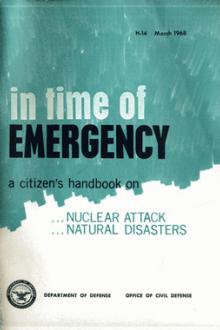Beautiful Things, Hunter Biden [good book recommendations .txt] 📗

- Author: Hunter Biden
Book online «Beautiful Things, Hunter Biden [good book recommendations .txt] 📗». Author Hunter Biden
We’d met during orientation. There were three Jesuit volunteer houses in Portland, each with six to eight volunteers. We’d all get together all the time. We’d pool our food allowances for potlucks and sit around and talk for hours. We came from schools all over the country—Kathleen graduated from St. Mary’s in Minnesota—but we were like-minded in our idealized devotion to social justice and making the world a better place.
There was tremendous camaraderie. Our heroes were the six Jesuit priests murdered in 1989 in El Salvador. We adopted the liberation theology that they preached, radical within the Catholic Church mainstream, which emphasizes social and political concern for the poor and oppressed. We were inspired by the activist prayer: “Touch me with truth that burns like fire.”
It felt freeing. Living three thousand miles from where I grew up, I almost felt like I had escaped the person everyone back there expected me to be. I was more confident, felt closer to my authentic self. I grew a beard, wore a leather jacket, rode the bus. I’d sit in Powell’s Books with enough money for an endless cup of coffee, then go to Nobby’s and drink nickel draft beers. I read everyone, from John Fante to Aldous Huxley to Lao-tzu. My favorite novel at the time was Charles Bukowski’s Post Office, about a down-and-out barfly—a bleak omen, in retrospect, of where my life would one day land.
I had kept journals, written poems, and drawn in sketch pads for years, always toying with the notion of someday writing books or painting. Now I’d found an environment that seemed to nurture all of that. Dad once told me that my mother, long before she died, had said she knew even while I was in the womb that I was going to be an artist. I drew constantly as a kid, getting lost in sketching figures and concocting endless mazes on notebook paper.
Later, in my teens and throughout college, I’d share with Beau poems that I wrote and sometimes submitted anonymously to journals and magazines. He loved them and encouraged me to keep it up; he told me he wished he’d become a singer-songwriter. Dad always made it clear I could be anything I wanted to be, but I never found the courage or the confidence to take those artistic pursuits any further.
Then Kathleen got pregnant. We married four months later, on July 2, 1993. We threw an engagement party for friends and family at Dad and Mom’s house in Delaware, then held the ceremony a week later in Chicago, at St. Patrick’s Church, an Irish neighborhood mainstay known as Old St. Pat’s because the yellow-brick building predates the Great Chicago Fire of 1871. The reception afterward was at the Knickerbocker Hotel ballroom, across the street from the Drake. Everybody had a blast. Kathleen and I were very much in love; we would’ve gotten married soon anyway, regardless of whether she was pregnant. Naomi, named after the sister I lost, was born that December. I was all in.
I was also at a crossroads. I had been accepted to law school at Georgetown, Duke, and Syracuse. Beau was in his second year at Syracuse, where Dad also got his law degree, and already had his mind set on public service.
I knew Syracuse had a renowned creative writing program—one of my favorite writers, Raymond Carver, had taught there, and another favorite, Tobias Wolff, was currently on the faculty. I had applied to the MFA program and been accepted. I considered getting a joint MFA-law degree.
Now all of that sounded a little silly. Studying fiction at Syracuse was a dream that would not lend itself to supporting a family. Besides, we weren’t particularly keen on living with a newborn in a place that seemed very far from home. The more grown-up choice was to go on to law school at Georgetown and shelve the artistic stuff.
That’s what I did. I returned to Georgetown, though my first choice had been Yale Law, where I hadn’t been accepted. Following my first year, I applied to Yale again and included with my application a poem I wrote—something everyone discouraged. Yale’s acceptance letter noted that my success and dedication during my first year of law school at Georgetown more than qualified me, but that my poem was unlike anything they’d ever received and earned me my spot there.
Beau understood each step, but still was disappointed I didn’t take the leap and pursue an MFA.
New Haven was a grind, scholastically and financially.
It was also a ball, in the way those periods are when you’re too young and dumb to know better. I paid for tuition and room and board with loans, and bought books and food with a small Pell Grant. Kathleen and I and little Naomi lived in a tiny garden apartment we had to enter through a basement. It was so run-down that when Dad, Uncle Jimmy, Uncle Frankie, and Beau drove up to help us move in, Uncle Jimmy looked around and said, “There’s no way you’re living in a place like this.” He enlisted the others to help tear out the thirty-year-old wall-to-wall carpeting and repaint every wall, working around the clock. As usual, Uncle Jimmy transformed a disaster into something beautiful and, in this case, turned a dilapidated rental into a quaint little home. Then we moved in our furniture, four pieces in all.
Kathleen stayed home with Naomi, a choice born as much out of necessity as of desire: we couldn’t afford childcare. We took turns putting Naomi to sleep and waking up with her. We had just enough pocket change so that Kathleen could go to the movies on Tuesday nights while I stayed home with the baby, and I could go





Comments (0)